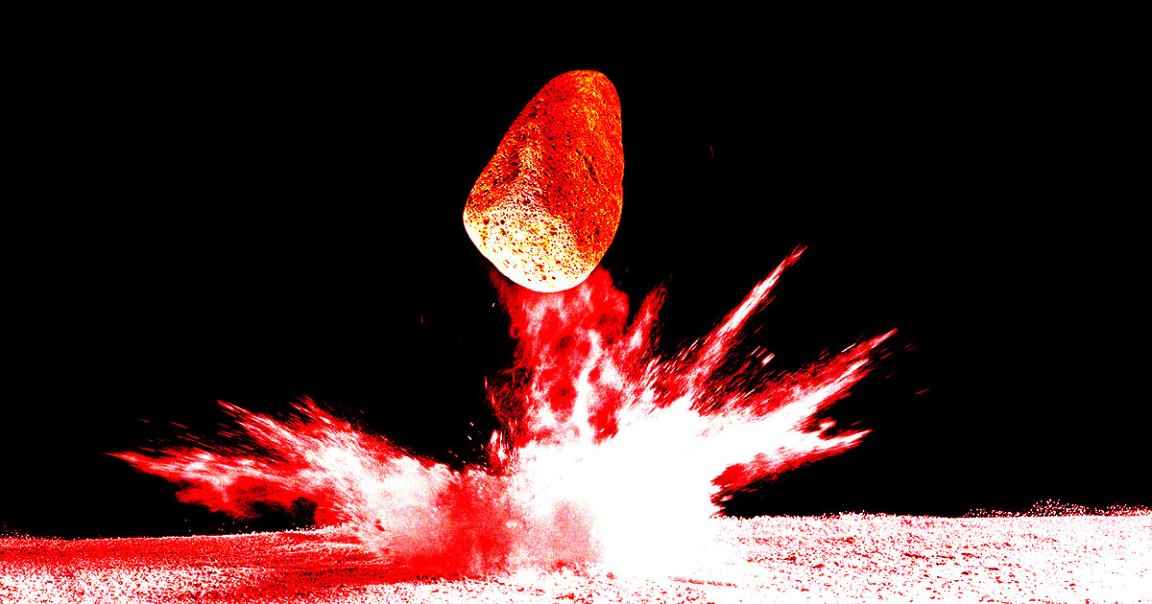
Meteor Not?
Earlier this week, reports emerged of a woman in France who claimed she’d been struck by a tiny, rebounding piece of meteorite while chatting with a friend over a cup of coffee.
It would’ve been an exceedingly rare event — as many have pointed out, there has only been a single incident of somebody being hit by a falling meteorite in recorded history.
As it turns out, plenty of experts have their doubts about the origin of the rock that hit her. While they aren’t refuting that a rock struck the woman, they suggest that chances are extremely slim that it had extraterrestrial origins.
For one, the rock pictured in Les Dernières Nouvelles d’Alsace (DNA). the French newspaper that broke the story, bears little resemblance with confirmed meteorites.
“The pictures CLEARLY show this is NOT a meteorite!” Observatoire de Paris astronomer Jeremie Vaubaillon told Space.com.
Melting Ice Cubes
Vaubaillon’s evidence: rocks experience extreme temperature fluctuations as they plummet from the sky.
“These rocks have way too many angles to be meteorites,” he told Space.com. “Remember that during its flight in the atmosphere, the initial rock melts because of the surrounding super-hot plasma.”
Vaubaillon likened the rock to an ice cube that quickly loses all of its “angular pieces” as it melts. To the astronomer, it’s most likely a volcanic rock that has bubbles of lava frozen within it.
French astronomy publication Ciel & Espace also published a report debunking the theory, noting that a blistering meteorite dropping out of the sky would have plenty of energy to come crashing through the woman’s roof. Besides, onlookers would’ve noted a bright object streaking through the sky in the area.
Such an exceedingly bright object “does not go unnoticed,” François Colas, an astronomer with the Fireball Recovery and InterPlanetary Observation Network, told Ciel & Espace.
Then there’s the sheer improbability at play. The Earth’s oceans cover over 70 percent of its surface, meaning that roughly “two-thirds of meteorite falls end up in the ocean, and most of the remaining ones end up in fields, forests, deserts, etc,” as Vaubaillon told Space.com.
According to the astronomer, it’s a 1 in 100 trillion chance — and that can only be a good thing.
More on the incident: Woman Reportedly Struck by Meteorite While Drinking Coffee